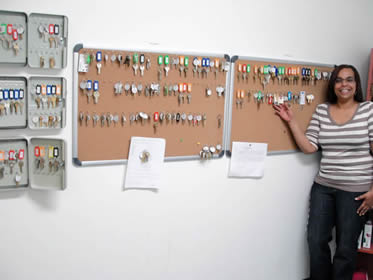




Housing First provides rapid access to permanent housing and voluntary access to a variety of services. Unlike traditional programs, sobriety or participation in treatment is not a condition of receiving housing. Residents must only comply with the tenets of a standard lease. Once housed, the housing itself becomes an ongoing incentive to change. We have found that most will do whatever is necessary to keep their housing, including accessing treatment.
The United Way conducted an independent evaluation of the Pilot Project and determined:
The program reached the target poulation, the chronically homeless. Participants were homeless an average of 335 days the year prior to entering the program and were off and on homeless for an average of 7.6 years. Housing proved to be stable, with 80% of the placements still housed after 12 months.
There were very significant public cost savings: The year before entering the program, clients used an average of $31,617 in public services (e.g. emergency room visits and hospital, shelter, jail and detox overnights). For the 12 months after entry to the program, this number dropped to $8,364. If you add the cost of supportive services ($9,500) and a housing subsidy ($5,643) the total spent is $23,507 ... or a savings of $8,110 per person.
This financial success is mirrored by human benefits that come from having safe, decent and affordable housing. Residents are accessing medical and dental care, and for some, mental health and substance abuse treatment. We are seeing social growth and in a few cases, families have been reunified. And in nearly every case, the residents are truly grateful and appreciative of the opportunity they have been given.
The success of the program led to HFRI receving a 2-year, $290,000/yr grant from the RI Department of Mental Health in 2007, and a 5-year, $400,000/yr grant from SAMHSA in 2009, the program was once again funded by the state at the full $300,000 level and the United Way awarded the program a 3-year, $146,000 year grant. In addition, these funds have been used to leverage nearly $1.4 Million in housing subsidies.
The bottom line: Since the end of 2011 HFRI is housing 190 persons and families who were formerly homeless and saving taxpayers over $1.4 million each year. Staggering but true.
An informative collection of videos featuring interviews with experts focused on ending homelessness.